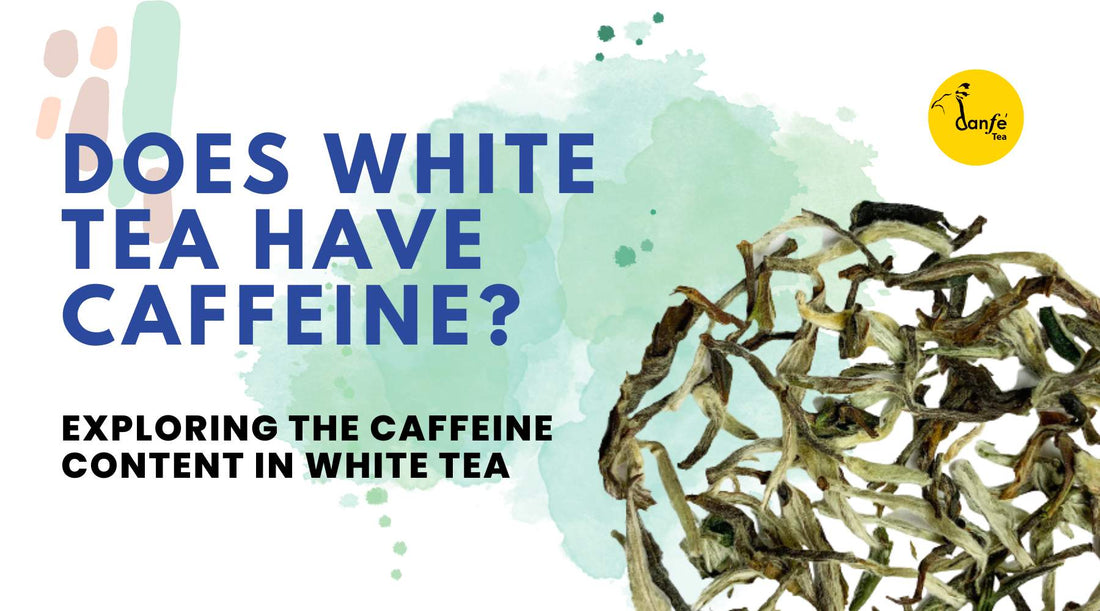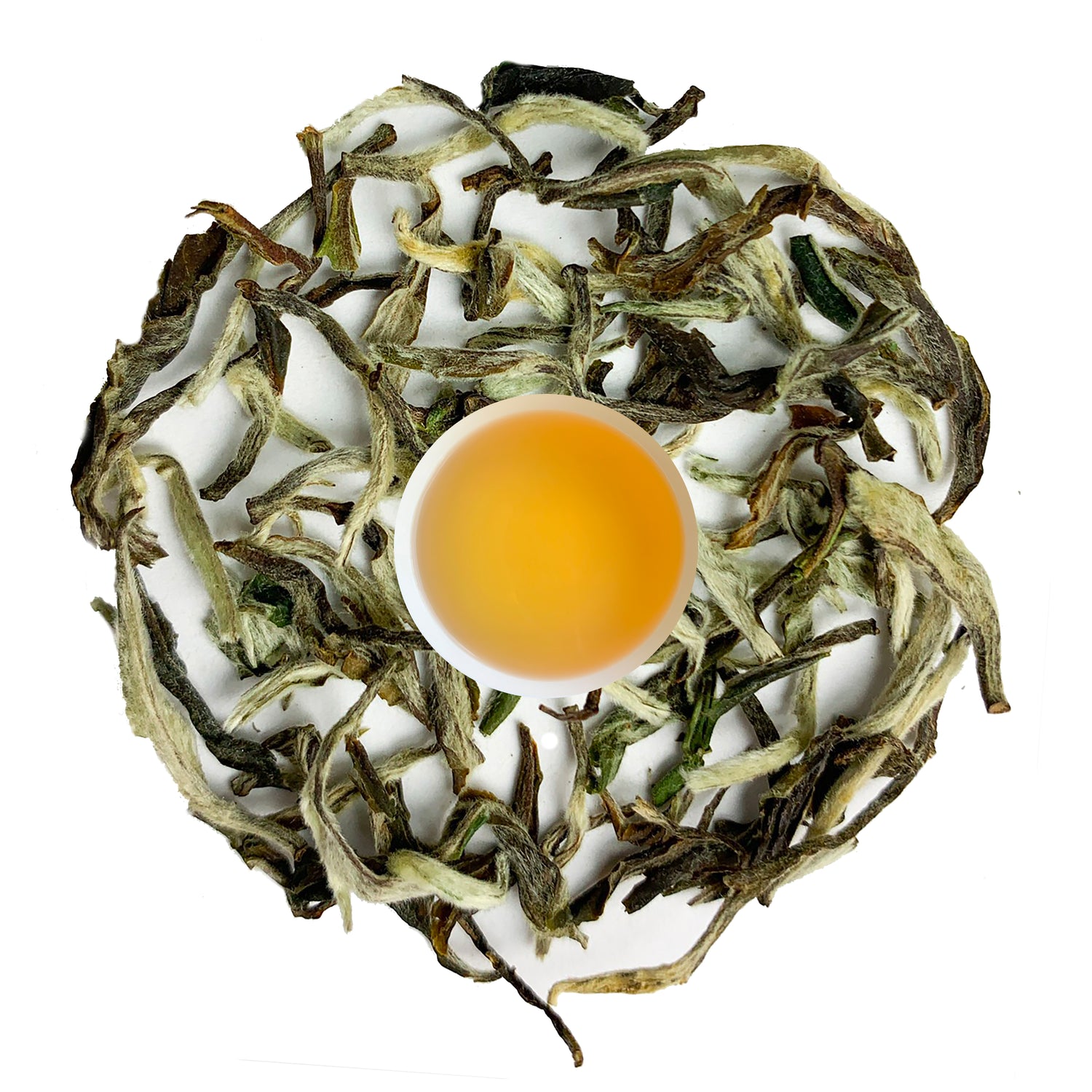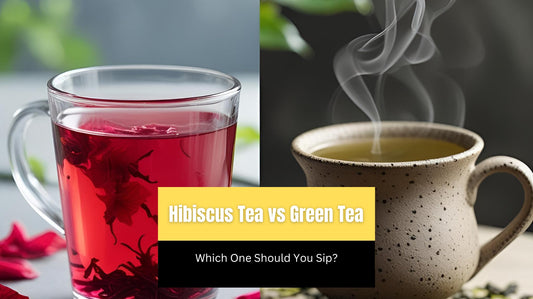
White Tea and Caffeine: What You Need to Know
White tea, celebrated for its delicate flavor profile and numerous health benefits, holds a special place in the world of tea. A common question among both seasoned tea drinkers and newcomers is: does white tea have caffeine?
This in-depth guide will explore everything you need to know about white tea caffeine, including the amount of caffeine it contains, its effects on the body, the potential benefits and drawbacks, and expert tips for brewing to achieve your desired caffeine level. Whether you are sensitive to caffeine or simply curious about this exquisite tea, you've come to the right place. ( how to make your white tea )
Understanding the Elegance of White Tea
Like green, black, and oolong teas, white tea originates from the Camellia sinensis plant. What distinguishes white tea is its minimal processing. It is crafted from young, unopened buds and tender young leaves, often harvested when they are still covered in fine, silvery-white hairs – hence its name. This delicate handling preserves its subtle flavors and high antioxidant content.
Popular varieties of white tea include:
- Silver Needle (Bai Hao Yinzhen): Considered the most premium white tea, typically offering a more delicate flavor and generally a lower caffeine level.
- White Peony (Bai Mudan): A more robust white tea with a slightly stronger flavor and a potentially higher caffeine content compared to Silver Needle.
- Aged White Tea (Bai Hao aged): Some white teas are aged, which can subtly alter their flavor profile. The caffeine content in aged white tea can vary but is often similar to younger white teas of the same grade.
White tea is prized for its light body, captivating floral aromas, and natural sweetness, often enjoyed without any added sweeteners.
What is Caffeine and How Does it Affect You?
Caffeine is a naturally occurring stimulant found in the leaves, seeds, and fruits of over 60 plant species worldwide, including the Camellia sinensis plant. When you consume caffeine, it primarily affects your central nervous system by blocking adenosine, a neurotransmitter that promotes relaxation and sleepiness. This blockage leads to increased alertness, improved focus, and a boost in energy levels.
Beyond its stimulating effects, caffeine has been linked to several physical health benefits, including a potentially reduced risk of type 2 diabetes, cardiovascular disease, Parkinson’s disease, and Alzheimer's disease.
However, it's crucial to consume caffeine in moderation. Overconsumption can lead to negative side effects such as jitters, anxiety, increased heart rate, digestive issues, and difficulty sleeping. Individual sensitivity to caffeine varies significantly.
So, Is White Tea Caffeinated?
Yes, white tea is caffeinated. However, it generally contains less caffeine than black tea and often falls within or slightly below the range of green tea. On average, an 8-ounce (approximately 240 ml) cup of white tea contains about 30 to 35 mg of caffeine.
To provide a clearer perspective, here's a comparison of typical caffeine levels in common beverages:
- Coffee (8 oz): 95–120 mg
- Black Tea (8 oz): 40–70 mg
- Green Tea (8 oz): 30–50 mg
- White Tea (8 oz): 30–35 mg
This makes white tea an appealing option for those seeking a gentle energy lift without the more pronounced effects associated with coffee or stronger teas.
Decoding the Caffeine Content: What Influences the Levels in White Tea?
If you're mindful of your caffeine intake and wondering how much caffeine is in white tea for a specific brew, it's important to understand the factors that can influence these levels:
- Age and Quality of Tea Leaves: Younger tea buds and the first young leaves tend to have a higher concentration of caffeine. This is a natural defense mechanism for the plant against insects. Therefore, premium white teas made primarily from buds, like Silver Needle, while often lower overall, might have a higher caffeine concentration per leaf compared to teas with more mature leaves. The overall quality of the leaves also plays a role, with carefully harvested and processed leaves often retaining more of their natural compounds, including caffeine.
- Place of Tea Cultivation: Environmental factors during the tea plant's growth significantly impact its chemical composition. Altitude, temperature, soil type, and rainfall can all influence caffeine levels. For instance, tea plants grown at higher altitudes or in more challenging conditions may produce more caffeine as a protective mechanism. Conversely, milder climates with consistent rainfall might result in lower caffeine content.
- The Tea Brewing Process: How you brew your white tea significantly affects the amount of caffeine extracted into your cup. Longer steeping times and higher water temperatures will generally extract more caffeine from the tea leaves. Using more tea leaves for a given volume of water will also result in a higher caffeine concentration. If you are looking to minimize caffeine, opt for shorter steeping times and slightly cooler water.
- Serving Size: This is a straightforward factor. A larger cup of white tea will naturally contain more caffeine than a smaller cup, assuming the brewing method is the same. Pay attention to the serving size you choose based on your caffeine sensitivity.
- Tea Bag vs. Loose Leaf: While the SEMrush strategy mentioned "tea bags," white tea is often enjoyed as loose leaf to appreciate its delicate leaves and nuanced flavor. However, the particle size in tea bags can sometimes lead to faster extraction of caffeine compared to whole loose leaves, although this is less about the form itself and more about the surface area exposed to the water.
The Benefits of White Tea's Gentle Caffeine Kick
When consumed in moderation, the caffeine present in white tea offers several advantages:
- Gentle Energy Boost: White tea provides a smoother and more sustained energy lift compared to the rapid spike and subsequent crash often associated with coffee.
- Enhanced Mental Clarity: The caffeine can improve focus, concentration, and overall cognitive function without the overstimulation that some experience with higher-caffeine beverages.
- Potential Support for Weight Management: Caffeine is known to have a thermogenic effect, slightly boosting metabolism and potentially aiding in weight loss efforts.
- Antioxidant Synergy: White tea is rich in antioxidants, and the presence of caffeine may contribute to the overall health benefits, including a potential reduction in the risk of chronic diseases like Alzheimer’s, Parkinson’s, and heart disease.
Potential Drawbacks of White Tea Caffeine
While generally milder, it's still important to be aware of the potential downsides of caffeine consumption, even from white tea:
- Sleep Disruption: Consuming white tea, especially in the hours leading up to bedtime, can interfere with sleep patterns in some individuals.
- Jitters or Anxiety: While less likely than with higher-caffeine drinks, sensitive individuals may still experience mild jitters or anxiety after consuming white tea.
- Dependence: Regular and high consumption of any caffeinated beverage can lead to dependence and potential withdrawal symptoms like headaches or fatigue if intake is suddenly stopped.
Brewing White Tea for Your Ideal Caffeine Experience
To optimize both the flavor and the caffeine level of your white tea, consider these brewing guidelines:
- Use Quality Loose-Leaf White Tea: Opt for 2–3 grams of loose leaves per 8-ounce cup.
- Water Temperature: Use water that is hot but not boiling, ideally between 175–180°F (approximately 80°C). This helps extract the delicate flavors without scalding the leaves and potentially releasing more bitter compounds and caffeine.
- Steep Time: A steeping time of 3–5 minutes is generally recommended for a balanced flavor and moderate caffeine extraction. Shorter steeping times will result in less caffeine.
- Cup Size: An 8-ounce cup provides a standard serving for gauging caffeine content.
For a step-by-step guide to achieving the perfect brew, be sure to check out our complete white tea brewing guide [link to your brewing guide if you have one].
Frequently Asked Questions (FAQs)
Q: Does white tea have more caffeine than coffee? A: No. Coffee typically contains significantly more caffeine, often three times the amount found in an equivalent cup of white tea.
Q: Is white tea caffeinated enough to keep you awake? A: White tea can contribute to alertness and help you stay focused. However, its lower caffeine content makes it less likely to cause significant sleep disruption compared to beverages like coffee or stronger black teas.
Q: Which teas have no caffeine? A: True teas (white, green, black, oolong, pu-erh) all contain caffeine. Caffeine-free options are herbal infusions, often referred to as herbal teas or tisanes. Examples include Tulsi, Lemongrass, Rooibos, and Hibiscus.
Q: What is Bai Hao and how does it relate to caffeine? A: Bai Hao (often referring to Bai Hao Yinzhen or Silver Needle) is a premium grade of white tea characterized by its silvery-white buds. While it generally has a lower overall caffeine content per cup compared to some other teas, the young buds themselves can have a concentrated amount of caffeine. Its flavor is typically delicate and often described as subtly sweet or honeyed.
Conclusion: Enjoy the Gentle Lift of White Tea
So, to definitively answer the question, is white tea caffeinated? Yes, it is, but in a gentler and often more manageable way than many other caffeinated beverages. This makes it an excellent choice for those seeking a mild energy boost, enhanced focus, and the numerous health benefits associated with tea consumption without the intense effects of higher-caffeine options.
At Danfe Tea, we take pride in offering exceptional white tea sourced from the pristine high mountains of Nepal. Each sip is not just a beverage; it's an experience, connecting you to the unique terroir of the Himalayas. It's a comforting and subtly invigorating drink with a delicate flavor that can bring a moment of tranquility to your day.
We invite you to explore the nuanced world of our white teas. Experience the difference that ethically sourced, high-altitude tea can make.
Ready to experience the gentle energy and exquisite flavor?
Try Premium White Tea from the Himalayas
At Danfe Tea, our white teas are carefully and ethically sourced from the serene mountain slopes of Nepal. Every cup is brimming with fresh flavors, potent antioxidants, and just the right touch of caffeine to gently brighten your day.
→ Danfe Tea Shop White Tea Now
Experience the calm and clarity in every delicate sip.
Buy the Finest Loose-Leaf Teas from the Himalayas
Danfe Tea is dedicated to bringing you the highest quality loose-leaf teas from the Himalayan region. Alongside our exquisite white teas, we offer a range of robust black teas, each with unique flavors and health benefits. Our teas are available in various sizes, and we also offer convenient monthly subscriptions.










